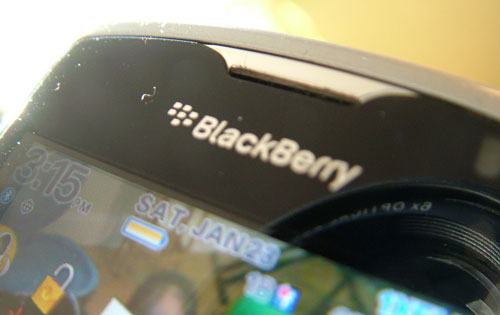
Before reading this article, may we suggest you do the following experiment: take out your smartphone and if you still haven’t installed WhatsApp (one of the most popular instant messaging applications), go to the app store and download it. Now check who is online. We bet more than 50% of your contacts (including your boss, your doctor and your accountant) are connected. You can try the same using Viber, IMO or BlackBerry Messenger. The result should be very similar. Surprised? Don’t be. Instant messaging is a pervasive form of communication and is here to stay.
The key question is how these apps are affecting the mobile industry. The BlackBerry outage of October 2011 yielded some interesting insight. But first some history on instant messaging (IM) apps.
Research in Motion’s BlackBerry used to be a product designed almost exclusively for the corporate segment. Then, in a relatively short period, it became more popular than Harry Potter in nothing short of a magic trick among the mainstream urban population.
Two elements propelled BlackBerry into the young urban segment with tremendous success: the introduction of lower-cost devices and, more importantly, the launch of BlackBerry Messenger (BBM), a “killer app” that allowed BlackBerry users to communicate seamlessly with one another through text.
Mimicking the success of BMM, but leveraging the much bigger and growing base of Apple and Android smartphones, a myriad open, device-agnostic IM apps started to flood the market. Names such as WhatsApp and Viber immediately ranked at the top of iTunes and Android app downloads. There is no doubt that these apps created a shockwave in the telecommunications industry and changed (probably forever) the way people communicate.
Although there is significant discussion about the damage done by IM apps to mobile operators, the actual impact is not easy to measure: even though these apps cause voice and SMS revenue erosion, they also increase the attractiveness of mobile broadband. Luckily, and as in any good story, every now and then a rare phenomenon comes along to shed light where previously there was only darkness.
The day(s) the earth stood still
One such rare event was the three-day BlackBerry outage of October 2011. From Monday, 10 October 2011, to Wednesday, 12 October 2011, BlackBerry data services went down simultaneously in several countries, causing panic at RIM headquarters.
Though the most notable effect was corporate executives not being able to access their e-mail through their BlackBerry devices, there was a significant number of complaints in the media coming from the non-corporate world. During those three days, millions of non-corporate clients (besides the white-collar execs) blamed BlackBerry for everything, from disconnecting them from the rest of the world to causing the earth to stand still. And the main issue was not even e-mail — it was the beloved BBM. It was as if suddenly we had regressed to the dark ages of actually having to call people to have a real-time dialogue.
The Canadian company, the first to find this new “goldmine” and launch a new era in telecoms, was now forcing the world into a three-day IM abstinence. Many even thought of crying out for government intervention to solve the problem.
Luckily for us, from this chaos emerged a unique opportunity to better understand how customers use IM apps (such as BBM) and, consequently, how these services influence operators’ business models. The results have deep implications for mobile operators.
I know what you did last October
We took a close look at customer behaviour during those specific days to better understand the importance of IM in how we communicate today. The outage gave us a golden opportunity to analyse traffic patterns before, during and after the event and gauge the impact on usage behaviour across different services (in particular SMS and voice).
The results are eye-opening — BlackBerry users affected by the outage altered their communication pattern very materially during those three days by increasing voice usage by 11% and boosting their SMS usage by a staggering 85%. Customers replaced their severed umbilical cord (BBM) with alternatives, even if these were charged for, substituting a text-based service for another (SMS).
It’s not about the money
Text-based messaging has become a staple and often non-replaceable form of communication, irrespective of the delivery method.
The shift from voice to data-enabled IM services has been traditionally justified by the fact that IM is for free. There is no doubt that this factor has been a major driver of adoption, but the “BlackBerry event” shows this is not the only reason for the take-up of IM. During these three days, the same customers who before were using messenger apps “for free” showed us that they were willing to pay (and did so) to keep communicating via text.
The communication patterns during the outage show that voice was not an option for them in many cases, opting to maintain a text-based messaging to avoid the intrusiveness of voice calling. Apparently, the convenience of this communication form prevails over the money factor, at least in the short run.
The adoption of IM is unstoppable and unavoidable — mobile operators should think twice before looking for ways to getting rid of them. The October blip showed that customers will find alternatives to meet their communication needs irrespective of the cost involved (to a rational extent). This serves as a reminder to all mobile operators in highly competitive mobile data markets as to how rapidly value can migrate to other players in the value chain if they fail or opt not to deliver the services that consumers want. Subscribers will incur the costs required to have access to these services, even if it includes switching providers.
So, yes the earth stood still at Blackberry headquarters but not for IM users — they found their way to maintain their text-based communication.
So what are the implications for mobile operators?
From a mobile operator’s perspective, the BlackBerry outage shows the relevance of IM and other over-the-top apps for their subscriber base and the associated cannibalisation of traditional voice and SMS revenue. It further raises the importance of properly monetising operators’ investments in newer technologies such as LTE, capacity increases and additional spectrum acquisitions to keep up with the massive data requirements of the new mobile data environment.
The experiment also shows customers’ dependency on mobile text-based messaging services, which can be further extrapolated to other forms of mobile communication. Customers’ willingness to pay shows that they attach significant value to the service, much more so than the free ride they currently get with IM apps. And if, in the short term, IM impacts mobile operators negatively, we believe that mobile operators — the true enablers of voice, data or whichever new forms of communication — will be the long-term winners of the hyper-connected world.
After all, customers can easily replace BBM, WhatsApp or Facebook should they fail. Replacing mobile operators is a completely different ballgame. The pipe (dumb or not) is still the unavoidable piece of the equation.
- Izquierdo and Simon are associate partner and principal at Delta Partners respectively
- Image credit: ilamont.com




